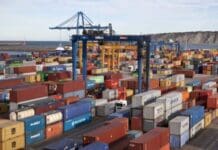As Nigerians continue to grapple with the impact of petrol subsidy removal, the Nigerian Association for Energy Economics (NAEE) has urged the federal government to cushion the effect on the masses.
This is even as it backs the government’s decision on the removal, which the fuel subsidy regime was more injurious to the Nigerian economy than it was beneficial.
NAEE president, Prof. Yinka Omorogbe, speaking to journalists in Abuja yesterday, ahead of the NAEE 16th International Conference, said
the association had for a long time taken the position that subsidies are more injurious than beneficial to Nigeria.
“ We are also quite aware, as energy specialists, that the new petroleum regime on the Petroleum Industry Act did not have subsidies there at all. So everything was premised on a market driven new environment for the Nigerian petroleum industry.”
Prof. Omorogbe disclosed that the international conference which begins on July 9 and has the theme, ‘Energy evolution, transition and reforms: Prospects for African economies’ will focus on how Nigeria can find long term solutions to its energy challenges especially in the face of transition to carbon neutral era.
On the issue of electricity, she held that it is the right of every Nigerian to have access to power supply.
Nigeria’s national grid supply currently averages 4,000 megawatts for a population of over 200 million people.
A recent World Bank report on energy supply showed that one out of ten people in the world without access to energy resides in Nigeria.
The government is currently mulling over a recommendation by the Nigerian Electricity Regulatory Commission, (NERC), to increase electricity tariff in the country.
Prof. Omorogbe said the federal government needs to holistically tackle challenges facing the energy sector in the country.
She observed that the entire 4,000MW on-grid generation was not enough to power Lagos, adding that pricing was not the only issue facing the industry.
According to her, “Electricity supply in Nigeria is one of the worst in the world. The sector is in a shamble and nothing to write home about right now.
“And the truth again is that we have generally not done things in a holistic fashion. You know here when the Association for Energy Economics started off talking about oil and the subsidy for downstream products, we went into electricity very naturally, and that is because energy is holistic.
“It is not like what we have done in the past, which is to treat petroleum and oil as very different from electricity and to talk about energy and power and not talk about it in a holistic sense.
“My take and I stand to be corrected anytime, any country that is successful in this area is dealing with energy as a whole and recognizing that the hydrocarbons are so useful and so important because they are sources of energy and sources for doing work in the same way as all the other sources.
“So when you are talking about electricity and trying to divorce it from the rest, you are going to fail, so to speak. Number two, if you are talking about electricity within any country, you have to be talking about electricity for everybody and every type of industry. We don’t.
“When we are talking about electricity, we are almost treating it like an elite product and thinking of electricity as that which you will give to the urban people.
“But for me, everybody has a right to electricity. So when you are talking about electricity, you should be talking about 200 million people. And if you are talking about 200 million people, you will be talking about a totally different framework.
“You should be talking about the fact that everybody has to have it. It’s not like right now in Nigeria what everybody has to have is a generator and that should not be”, she added.






